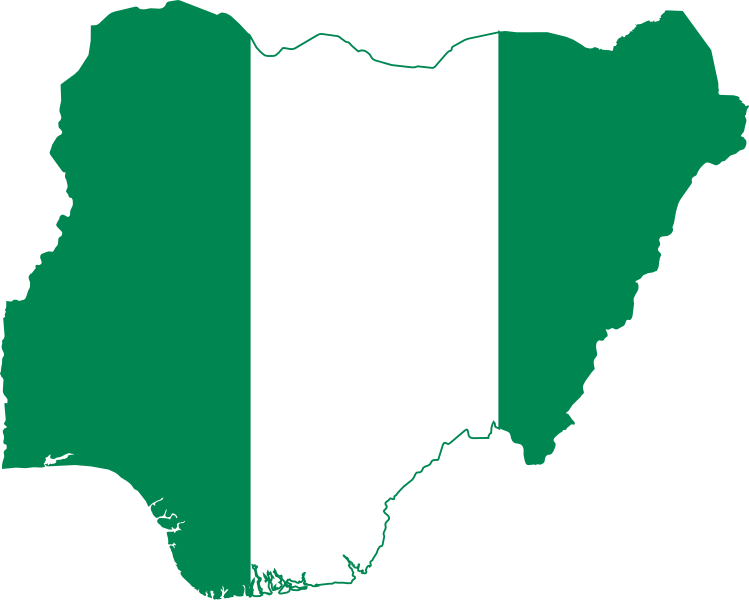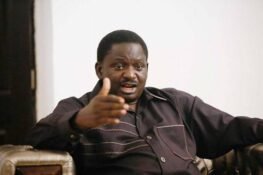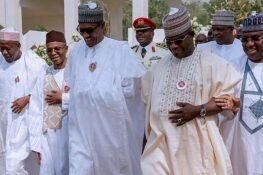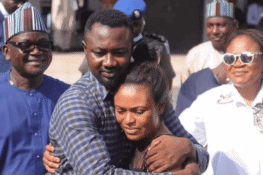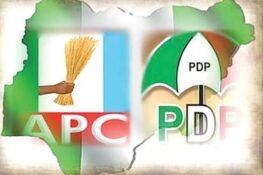If you were young, courageous and had ambitions or dreams of being president in 1960s Nigeria, the place to be was in the Nigerian Army.
That description could easily fit Yakubu Gowon, Odumegwu Ojukwu or officers that lost their lives at an early stages in the struggle for power like Chukwuma Kaduna Nzeogwu, Aguiyi Ironsi and Zakari Maimalari.
Never mind that a different set of political leaders were at the forefront of fighting and negotiating for an independent Nigeria.
Of course the presence of some of these officers in the army was the product of regional ambitions driven by Obafemi Awolowo, Ahmadu Bello and Nnamdi Azikiwe.
But somewhere along the democratic journey and the realities of self-rule, the lines between regional ambitions and personal ones became blurred.
It must be said that the trend across Africa in the early 60s was for military officers to take over government, so that too could have been an influence on the young officers that staged the first coup in January 1966.
In an independent Nigeria, democracy lasted just over five years.
Buhari, along with Yar’Adua, Sani Abacha, Ibrahim Babangida easily make up the golden generation of the Nigerian Army
It is almost a certainty that President Muhammadu Buhari will be the last of the old guard, the prestigious club of military officers to govern Nigeria.
For 40 years now, they’ve managed to control every aspect of life in Nigeria, from politics to business down to the civil service.
Because of his age and tribe, the odd one out was Olusegun Obasanjo and maybe Shehu Yar’Adua because he never actually ruled.
But Buhari, along with Yar’Adua, Sani Abacha, Ibrahim Babangida easily make up the golden generation of the Nigerian Army. What were the odds that four or five ambitious cadets joining the army at the same time would get to the very top at the expense of all others?
Yet, somehow everyone of them got to the opportunity to rule the country in spite of the intensity of the competition among them and all being relatively the same age.
There are a dozen others like Mamman Vatsa and even Aliyu Gusau who also aspired to greatness but never quite made it there.
The opportunity for them to rule in the mid-eighties up to the late nineties meant they had to evict a democratically elected president who had just secured a second term in office.
As president, Shehu Shagari heard murmurs of an impending coup, but it turned out there was little he could do about it.
It’s hard to say whether it made any real difference, but upon becoming president, one of Obasanjo’s earliest actions was to purge the Nigerian Military of officers who had at any point in their careers held political office such as minister or governor during the long years of military rule
Along the way, the rivalries between the uniformed men led Nigeria down dark roads with two or three of them paying with their lives but maybe that was exactly what forced a change in course, got this club of officers to correct their mistakes and instead compete for power among themselves through democratic means.
Even if it was for selfish reasons and not ruling out local and external pressure, it is still undeniable that Nigeria today has remained a democratic nation for 20 and counting because they wanted it so.
The elections in 1999 was in so many ways an army arrangement. They had a preferred candidate in Olusegun Obasanjo, one of their own. He had been in detention for several years, was quickly released and propped up to be president.
Obasanjo handily defeated his only rival garnering close to 19m votes against Olu Falae’s 11m.
It’s hard to say whether it made any real difference, but upon becoming president, one of Obasanjo’s earliest actions was to purge the Nigerian Military of officer who had at any point in their careers held political office such as minister or governor during the long years of military rule.
Today, Obasanjo has his own ideas about what his legacy should be. For others though, what he will be remembered for is, first the high turnover of leadership in the National Assembly which he served as catalyst.
It spoke of a president who had a mindset of someone who, willy nilly, must be obeyed. Compromise and negotiations were not part of his DNA.
The process may have been imperfect, it may not have been his original desire or wish, but Obasanjo presided over the country’s first successful transition from one elected government to another
Most of all, what he will always be remembered for was his attempt to amend the constitution and remain in office for a third term or even indefinitely.
But he has left an imprint that is hardly talked about. The process may have been imperfect, it may not have been his original desire or wish, but Obasanjo presided over the country’s first successful transition from one elected government to another.
In 2007, Umaru Musa Yar’Adua came into office with the admission that the elections that got him there were flawed and immediately set up a committee to advice on electoral reform.
That in part is led to the 2010 Electoral Act. It was a compromise version of the recommendations made by his committee.
But it was in other ways that the Yar’Adua presidency would test the collective resolve of the political class to stick to the democratic path, adhere to the rule and follow constitutionally laid procedures in times of crisis.
Right from the moment he was elected, Yar’Adua was a president with ailing health. And with the pressures of being president, his health was only bound to deteriorate.
Finally, he was flown out of the country in November 2009 plunging the entire country into a constitutional crisis and a state of suspense on whether he was living, conscious or dead.
The president had left the country without handing over power to his vice president, Goodluck Jonathan, leading to political paralysis.
In every sense, it was a constitutional crisis with the Supreme Court weighing in and giving the president’s cabinet an ultimatum to declare him fit or unfit to remain in office.
And even when there were fears that the military might choose to make a comeback, the entire security establishment stood by the president, starting from the National Security Adviser, Sarkin Muktar; his Army Chief of Staff, Abdurrahman Dambazau and all the heads of other security outfits.
This paved the way for the ailing president to be flown back into the country in February 2010 without the knowledge of Jonathan even after the Senate had voted on a doctrine of necessity transferring presidential powers to him on acting capacity.
But maybe the most crucial person in the impasse was the president’s Chief Security Officer, Yusuf Tilde who remained fiercely loyal.
Before he could find his feet as president, Goodluck Jonathan was already confronted by the pressures of his party’s policy of zoning the office of president among the six regions, which Yar’Adua’s death had just upended
As he saw it, as long as the president was living, it was his duty to protect him and his presidency. And with no one able to gain access to Yar’Adua, the impression was that there were two presidents in Aso Rock.
To solve that problem, Tilde was sacked from the SSS after a string of other security heads had been replaced by Jonathan.
In the end though, the wider political impasse was finally resolved on May 5, 2010 when President Umaru Yar’Adua passed away.
Before he could find his feet as president, Goodluck Jonathan was already confronted by the pressures of his party’s policy of zoning the office of president among the six regions, which Yar’Adua’s death had just upended.
The pressure was on him not contest the 2011 election. But once he was in the seat of president, dislodging him, even in an election proved impossible.
In the end though, his party rallied around him on the understanding he would serve just one term in office. And it came at an expense.
He lost control of the party to ambitious state governors who were mostly behind the demand.
As it turn out, he didn’t hear the part on the one term limit in the communication from the power brokers in the party opening a crack in the PDP; one that would never be fixed until after the 2015 general elections.
Cracks in the party were deepened by a rebellion in the House of Representatives in response to a push to impose a leadership on them by the party.
And by 2015, with Jonathan trying to hold on to the party, the split led the party to lose its majority in both chambers of the National Assembly with members, along with several governors decamping to the opposition APC.
Today, the threats to constitutional and democratic rule are no longer coming from the military. It is from within
The result was a historic defeat of the ruling party, a first in Nigeria. Even more historic was Jonathan’s concession of defeat.
And for the first time in Nigeria, a transition took place from one political party to another. May 29, 2019, six weeks from now, would mark the beginning of President Muhammadu Buhari’s second term in office.
His first term in office was defined mostly by events that had been building up over the previous 16 years of democracy.
The push by the legislative and judicial arms of government assert their independence. It’s a fight that has taken place in other countries; a Chief Justice in Pakistan or a House Speaker in the U.S trying to take on the role of prime minister.
Here, Senate President Bukola Saraki had slowly started make his own foreign policy initiatives outside of official and diplomatic channels. He just couldn’t find enough space and eventually ran out time with his constituency.
May 29 also marks the 20th year of democratic rule in Nigeria; the longest stretch it has ever recorded. Buhari is now leading a country that has greatly evolved since his military days.
Today, the threats to constitutional and democratic rule are no longer coming from the military. It is from within.
The stress on the system is coming more from the the hostile relationships between the three arms of government particularly in the last four years. During his first stint as military head of state in 1984, Buhari was brought down by those he believes were corrupt.
As an elected president determined to fight corruption even in the highest of places and other arms of government, his party has been singing a tale of corruption fighting back, and fighting back even by foul means. With the 2019 elections approaching, the stakes could not have been higher.
There was no harmony between the trio of Buhari, Saraki and Chief Justice Walter Onnghen and something was always going to have to give.
It came in the suspension of Onnoghen. The 20 years have been a roller coaster of political drama and upheavals.
The question now is, what comes next?
